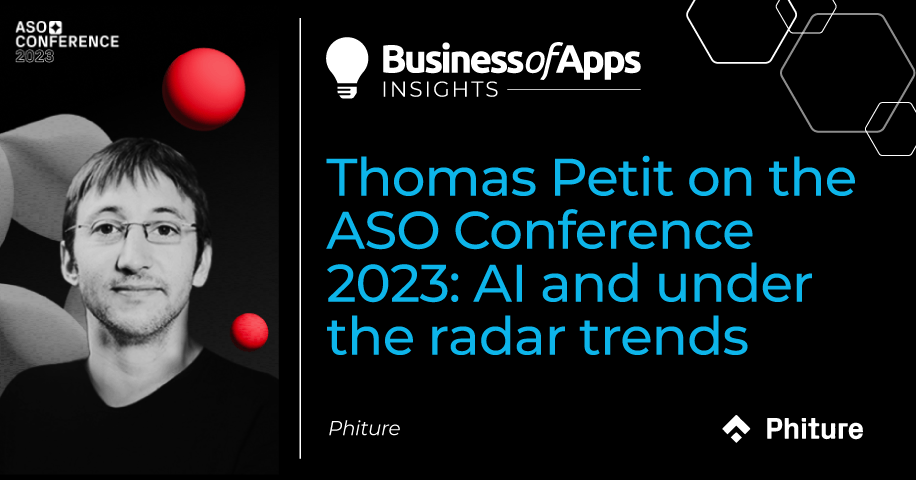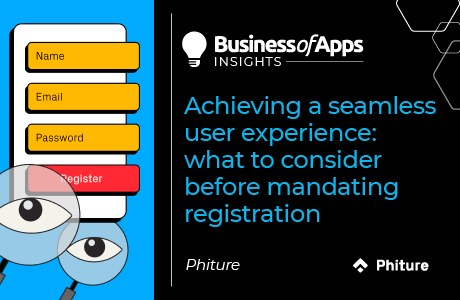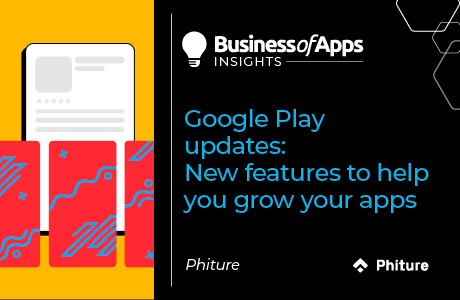Thomas will be addressing the hard truths about Apple Search Ads bringing his trademark wit and insight. Thomas is a well-known figure in the mobile growth industry, having worked with a diverse portfolio of apps to help them scale, and is a thought leader on mobile topics. We sat down with Thomas here to discuss the upcoming ASO Conference, current trends in the mobile growth space, and his thoughts on hot topics like AI, privacy, and third-party app stores.
You’re speaking at the ASO Conference in Berlin again this year, what are you looking forward to most?
Thomas: Being back in Berlin in spring is an enticing prospect, especially if the venue is as spectacular as last year. What I’m mostly looking forward to is reconnecting with the ASO community. The ASO Conference brings the best people in the field together, many of whom I’ve become personal friends with. Being together in one place pretty much only happens once a year, and the ASO Conference is the place to learn from the very best in the field. Of course, there are also various presentations I don’t want to miss, as the agenda looks really hot for 2023.
Can you give us a sneak preview of the topic you’ll be discussing at the ASO Conference?
Thomas: My own talk is about things that aren’t often said about Apple Search Ads; the hard truths that you won’t read in most posts. Agencies, MMPs, and the press often only mention the positive sides of this channel, and I’ll be discussing some not-so-nice ones to rebalance the narrative. I do use ASA for pretty much all my clients, and it’s definitely a channel to be on, but there are several limitations, drawbacks, and even traps I want to showcase.
Is the role of Apple Search Ads in overall marketing strategy changing, and if so, how?
Thomas: The way marketers perceive ASA and evaluate this channel has changed for sure, partly because of the positive public narrative I mentioned, but mainly because its measurement method is unique. I don’t think the role of the channel has fundamentally evolved, but practitioners are finally starting to get the most out of it by being smarter and maximizing performance (for example with CPP) but also fully utilizing the unique learnings, for example, trends on brand, or generic keywords post-install conversion data.
AI is the acronym on everybody’s lips at the moment, what do you think the main impacts of this will be in the mobile growth space?
Thomas: It’s definitely exciting to follow and play around with the various tools recently released. Given the astonishingly rapid pace AI tools are going, any prediction that extends any more than three months seems risky. I believe the biggest impact will be when we can fully use AI for visual assets creation, for ad creatives on one side, and for app content on the other. We’re not there yet in my opinion, because that means getting the same for video, sound, and animations, as we are starting to have for text and pictures, but this is likely only months ahead, and it will be a game changer.
Much was made of the fact that Apple will be allowing third-party app stores last year. What do you foresee will be the main fallout from this?
Thomas: A big nothing burger. Let’s assume it actually happens, and there are alternative stores to install iOS apps soon. I doubt most users will actually use them or even hear about them.
I also bet Apple will have obstacles in place, much like Google does today, publicly saying Android is open to all while enforcing restrictions that prevent the development of third-party stores (except in China, where the Play Store and Play Services aren’t available). There is certainly some business on the AppGallery or the Amazon Appstore, but to a scale that isn’t really disrupting the Play Store. I believe the same will happen on iOS. The messaging shown to users trying to install apps outside the Play Store is off-putting to most and I can see Apple doing something similar.
The only way I see my prediction may fail is if/when the biggest game publishers, with strong IP, form an alliance to propose an alternative store together, but this seems far away even though I can see Epic leading the move.
What are the trends that you think are flying under the radar right now that mobile growth professionals need to be aware of?
Thomas: As the app community is fairly open, the big trends are quite visible. I’ll mention three areas of focus I’ve seen more attention paid towards in the past year or so, and none of them uses Midjourney for icon or GPT for description.
Maximize App Growth with #1 App Store Optimization Company
Expand app store reach, increase downloads, boost engagement, lower acquisition costs & achieve higher user LTV with our leading ASO services & technology
Contact Us TodayLive Ops for non-gaming, and not just with Apple in-app events but regular campaigns and themes to create dynamism around the content and its communication
“Subscription optimization” and monetization in general. After a first phase that was maybe more focused on A/B testing paywalls layout and plans, many apps are getting deeper into monetization strategy, with more complex flows, hybrid models, and more attention on payment triggers, but also rethinking the balance between free and paid experiences to maximize both retention and conversions.
I used to say that as app marketers get more sophisticated, their success metrics tend to go down the funnel, from CPI to CPA to return to ad spend based on LTV. The next evolution is to look at the revenue development curves and payback periods instead of overall LTV to fully understand not just how much money comes back but WHEN it’s coming back because there is more pressure around short-term returns and cash flow with less easy access to capital.
You’ve made your name as an independent in the mobile growth space, what would be your advice to someone trying to emulate this path?
Thomas: “Just do it!” We’re lucky there is still more demand for talent than there is supply.
But also, I would say think twice about it. I love working as an independent, but it’s not for everyone. Some thrive in a more structured environment, working with the same team, need the support of a manager, the comfort of a regular salary and so on. I also see the stress of managing oneself prevents some from fully realizing their potential, and that’s especially true in uncertain times.
Even though I now work on fairly broad topics, I would also recommend starting with a more narrow approach, focusing on one speciality where one can go deep and make their name in, rather than offering everything and lacking differentiation. In my early days, most of my services were around paid UA and attribution, it’s only later that I started adding more disciplines. Even now, I’m reluctant to sell services where I don’t feel I can bring value.
Finally, and maybe most importantly: never leave clients unhappy! Sometimes it means extra effort for no money, and it’s still the way. Reputation is everything. I’d rather refuse potentially lucrative missions than take the risk of performing poorly and leaving a bad impression. It’s a small world where information flows fast, so play the long game.
Tickets are still available for the ASO Conference on June 1, where you can see Thomas discussing Apple Search Ads. For the full itinerary, see the ASO Conference 2023. You can get a 20% discount on a ticket with the code: THOMAS











